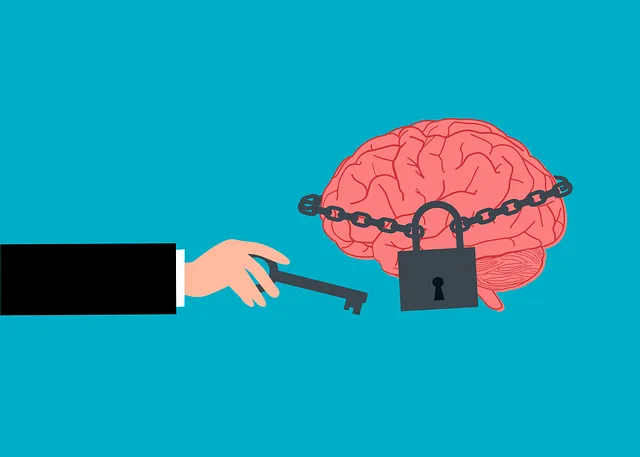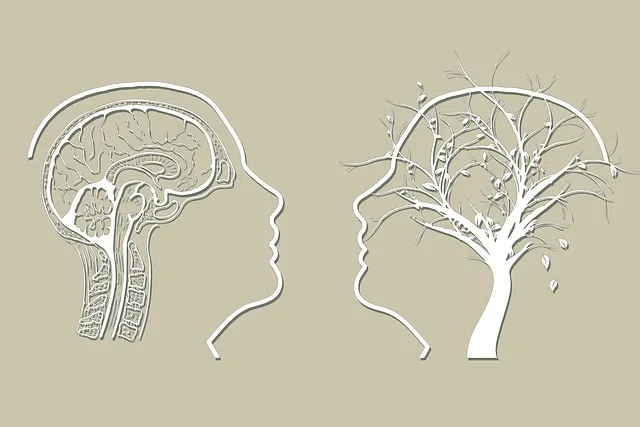Kaiser Permanente behavioral health services Lafayette promote positive thinking as a cornerstone of well-being, challenging negative thoughts with holistic exercises like mindfulness meditation and self-awareness practices. Their programs, including Crisis Intervention Guidance and community outreach, empower individuals to reframe negative thought patterns for improved mood, resilience, and physical health. Evaluating success through quantitative and qualitative measures ensures lasting impacts on mental wellness.
Positive thinking exercises are gaining recognition as powerful tools for enhancing mental well-being. This article explores the implementation of such practices, drawing insights from Kaiser Permanente Lafayette’s innovative behavioral health services. We delve into the science behind positive thinking and provide practical strategies for its integration. Understanding these techniques can significantly impact personal growth and resilience, mirroring the comprehensive approach adopted by Kaiser Permanente Lafayette in their behavioral health initiatives.
- Understanding Positive Thinking: A Foundation for Behavioral Health
- Kaiser Permanente Lafayette's Approach to Behavioral Health Services
- The Science Behind Positive Thinking Exercises
- Implementing Positive Thinking: Strategies and Techniques
- Measuring Success: Evaluating the Impact of Positive Thinking Exercises
Understanding Positive Thinking: A Foundation for Behavioral Health

Positive thinking is a fundamental aspect of behavioral health, emphasized by organizations like Kaiser Permanente through their Lafayette behavioral health services. It’s not merely an optimistic outlook but a structured approach to challenging negative thoughts and replacing them with more positive ones. This process begins with self-awareness—identifying and acknowledging negative thought patterns that can lead to distress, anxiety, or depression. By understanding these patterns, individuals can start to reframe their perspectives and cultivate a more balanced mental state.
The benefits of positive thinking extend beyond improved mood. Research suggests it can enhance resilience during stressful situations, boost self-esteem improvement, and even contribute to physical health. Organizations like Kaiser Permanente play a crucial role in promoting this through various initiatives, including Crisis Intervention Guidance programs and Public Awareness Campaigns Development that highlight the power of positive thinking as a proactive tool for mental well-being.
Kaiser Permanente Lafayette's Approach to Behavioral Health Services

Kaiser Permanente Lafayette takes a holistic approach to behavioral health services, recognizing that mental and physical well-being are intricately linked. They offer a range of programs aimed at empowering individuals to take charge of their mental health and cultivate positive thinking patterns. One key initiative is their focus on Mindfulness Meditation practices, which help patients develop inner strength and resilience. By integrating mindfulness techniques into daily routines, individuals can enhance their ability to manage stress, improve focus, and foster a deeper sense of calm.
In addition to mindfulness, the Lafayette location promotes the Mind Over Matter Principles, encouraging clients to reframe negative thoughts and cultivate optimistic perspectives. This cognitive approach, coupled with therapeutic interventions, equips individuals with practical tools to navigate life’s challenges more effectively. Through these comprehensive services, Kaiser Permanente Lafayette aims to not only treat behavioral health issues but also to empower individuals with the inner strength necessary for long-term well-being and happiness.
The Science Behind Positive Thinking Exercises

The Science Behind Positive Thinking Exercises
Positive thinking exercises have gained significant attention from researchers and mental health professionals alike, with organizations like Kaiser Permanente behavioral health services Lafayette recognizing their potential benefits. Numerous studies have shown that cultivating positive thoughts and attitudes can lead to substantial improvements in overall well-being. This approach is rooted in the concept that our thoughts directly influence our emotions and behaviors, creating a powerful feedback loop. By focusing on positivity, individuals can experience reduced stress levels, enhanced mood management capabilities, and even improved physical health markers.
These exercises often involve practices such as gratitude journaling, affirmations, and cognitive reframing, which encourage individuals to challenge negative thought patterns and replace them with more constructive ones. For instance, Self-Care Routine Development for Better Mental Health plays a crucial role in integrating positive thinking into daily life. By dedicating time to engage in activities that promote positivity, one can foster a sense of resilience, improve coping mechanisms, and ultimately, achieve better control over their emotional state. This scientific understanding has led many mental health institutions, including Kaiser Permanente behavioral health services Lafayette, to incorporate these exercises as part of comprehensive treatment plans for enhanced patient outcomes.
Implementing Positive Thinking: Strategies and Techniques

Implementing Positive thinking requires a strategic approach, and organizations like Kaiser Permanente behavioral health services in Lafayette have pioneered effective methods. One powerful strategy is integrating Self-Awareness Exercises that encourage individuals to reflect on their thoughts and emotions, fostering a deeper understanding of themselves. By promoting self-awareness, people can challenge negative thought patterns and cultivate more positive perspectives.
Furthermore, initiatives like Community Outreach Program Implementation play a vital role in spreading positive thinking. These programs often offer workshops and support groups focused on Self-Esteem Improvement, teaching individuals coping mechanisms and resilience-building techniques. Through interactive activities and shared experiences, community outreach strengthens the connection between positive thinking and improved mental well-being.
Measuring Success: Evaluating the Impact of Positive Thinking Exercises

Measuring success is an integral part of any exercise implementation, and positive thinking exercises are no exception. At Kaiser Permanente behavioral health services Lafayette, we believe in evaluating the impact to understand what’s working and where there’s room for improvement. This involves assessing changes in participants’ attitudes, behaviors, and overall mental wellness using standardized tools and qualitative feedback. By comparing pre- and post-exercise surveys, we can quantify improvements in areas like stress reduction, conflict resolution techniques, and positive outlook on life—key aspects often targeted by our Mental Wellness Podcast Series Production.
The process also includes gathering qualitative data through interviews or focus groups to gain deeper insights into participants’ experiences. This holistic approach ensures that the exercises are not just providing temporary relief but fostering lasting changes in mental wellness practices. The feedback informs our ongoing development of positive thinking programs, ensuring they remain effective and aligned with the evolving needs of our community.
Positive thinking exercises, backed by scientific evidence, offer a powerful tool for enhancing mental well-being. As demonstrated by Kaiser Permanente Lafayette’s innovative behavioral health services, these strategies can significantly impact an individual’s overall health and happiness. By integrating positive thinking into daily routines, individuals can improve their resilience, reduce stress, and cultivate a more optimistic outlook. The success of these exercises lies in their accessibility and adaptability, making them valuable resources for improving mental health on a personal and community level, especially within the context of Kaiser Permanente Lafayette’s comprehensive behavioral health services.






